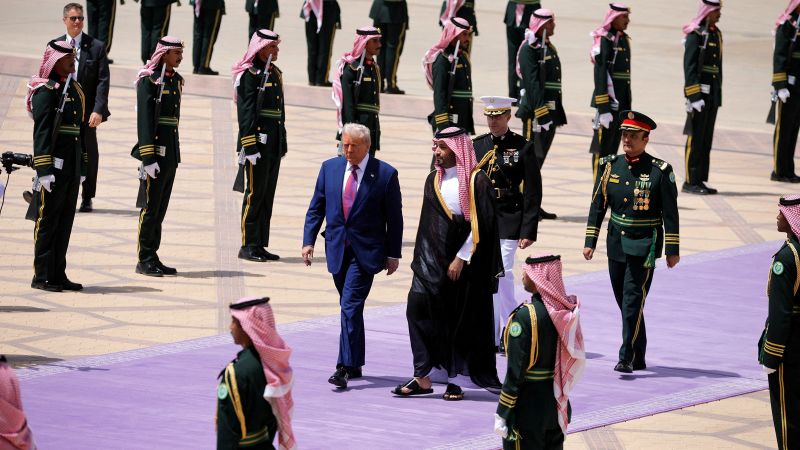President Donald Trump’s visit to Riyadh marked the commencement of his first major international trip of his second term, emphasizing his role as a skilled dealmaker and diplomat. Amidst a backdrop of grandeur and investment deals, Trump announced the lifting of sanctions on Syria, a substantial shift in foreign policy. He urged Saudi Arabia to join the Abraham Accords and exerted pressure on Iran to engage in nuclear negotiations with the US.
However, the complexities of global affairs were evident as Trump faced challenges such as the ongoing conflict in Gaza, limiting his influence. Despite this, his foreign policy vision garnered attention and intrigue from both allies and adversaries alike.
The visit showcased significant investment agreements between the US and Saudi Arabia, highlighting collaborations in defense and energy sectors. Trump’s interactions with tech executives and his affirmations of a closer relationship with Saudi Arabia underscored the strategic importance of the visit.
Furthermore, Trump expressed optimism about expanding the Abraham Accords to include Saudi Arabia, emphasizing the potential for regional peace and stability. However, the crown prince of Saudi Arabia emphasized the need for Palestinian statehood and resolution of the Gaza conflict before normalizing relations with Israel.
Trump’s visit, rich with diplomatic gestures and investment pledges, set the stage for potential shifts in Middle Eastern alliances and highlighted the intricate dynamics of international relations.

